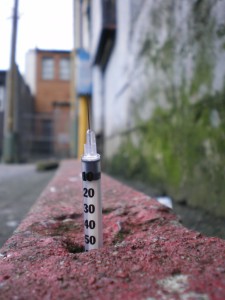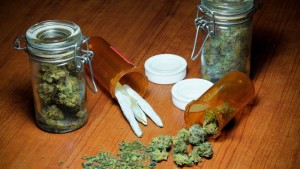Signs and Symptoms of Adderall Use in the Workplace
The use of the psychostimulant amphetamine Adderall is again on the rise. Due to its ability to increase attention and concentration it has become the drug of choice among the college crowd and those looking to gain a competitive edge in sports, the classroom, and in the workplace. In fact, the demand for Adderall became so dramatic in 2012 that the federal government had to act to combat shortages of the drug.
It stands to reason that use of Adderall in the university would carry over into the workplace as students graduate and find themselves in yet another competitive environment. Quest Diagnostics, the nation’s largest toxicology laboratory reported in their 2014 Drug Testing Index Report that for the first time in 10 years the positivity rate for workplace drug testing increased and attributed it to “a rise in marijuana and amphetamines (use)” and things look to be getting worse. The proliferation of the drug can be reliably tracked by simply looking at the amount produced each year. Since the drug is classified as a schedule II drug, yearly production is controlled by the DEA. In 1990, 417 kg of amphetamine was produced; in 2012 the number was 25,300 kg. The number is doubling every few years.
Safety risks and other problems of use in the workplace
If Adderall helps performance and concentration, what’s the big deal? Here’s a few reasons…
Employee health:
- Loss of appetite can cause stress and malnutrition
- Sleep deprivation and physical exhaustion
- Paranoia and psychosis
- Can be highly addictive
- Withdrawal symptoms – extreme agitation, irritability and (ironically) an inability to focus
- Long term use can cause anhedonia, or the inability to feel a sense of enjoyment or pleasure without the aid of some chemical stimulant
- Increased violent behavior
- Possibility of overdose – hallucinations, convulsions and possible death
Productivity and Safety: Any short-term increases on concentration and productivity are simply outweighed by the potential negative effects on the employees physical and mental health. Even with the perceived good intentions, Adderall abusers, especially those performing safety sensitive duties pose a significant risk to their selves, their co-workers and possibly the public. In addition, long-term users will find that the benefits they thought they were receiving from use disappear as they become sleep deprived, overworked, exhausted and unfocused. As with other stimulants, users may develop a need to take larger doses over time to receive the same effect further worsening their problem.
Adderall in the workplace
Since the drug is available by valid prescription it is possible that employees will have a legitimate prescription for Adderall. However because the drug is so easy to come by it is very likely that many employees would be abusing the drug without prescription. The difference in dealing with employee with a prescription and an employee without prescription is beyond the scope of this post, however any supervisor with the authority to make a reasonable suspicion determination should review their workplace drug policy, and have a good understanding of state and federal law as it relates to prescription drug use. There’s a good article written in OHS (Occupational Health and Safety) .
Companies with employees performing safety sensitive duties such as driving a DOT regulated vehicle, flying a plane, driving a bus, working with hazardous materials, etc. need to be extra vigilant in their efforts to ensure employees exhibiting signs and symptoms of use or abuse are interviewed and possibly drug tested when necessary.
Signs and Symptoms
When looking for signs and symptoms of Adderall abuse supervisors should be looking for ‘deviations from the norm’ in the employees typical behavior, attitudes and physical characteristics. For example, if an employee is exhibiting an elevated level of alertness and excitement but has always historically exhibited those characteristics then those particular signs and symptoms would be a weak indicator of use. You looking for signs that would be abnormal for that individual.
Stimulation:
Alertness | Highly Energetic | Abnormal Level of Confidence | Reduced Apeitite | Raised Pulse | Rapid Breathing | Over Excitement | Dry Mouth | Pupil Dilation | Abnormally Talkative | Sweating | Restlessness | Irritability | Anxiety | Aggression | Coordination Difficulty | Headaches
Withdrawal:
Physical Exhaustion | Depressed Mood | Sleepiness | Mood Swings | Over Sleeping | Depression | Anxiety | Irritability
Addiction:
Paranoia | Delusions | Hallucinations | Severe Anxiety | Poor Judgement | Depression | Suicidal Thoughts | Exhaustion | Weight Loss | Malnutrition
AtHandTraining.com provides online training for DOT supervisor training, DOT employee drug awareness training, and drug free workplace drug and alcohol awareness training.


